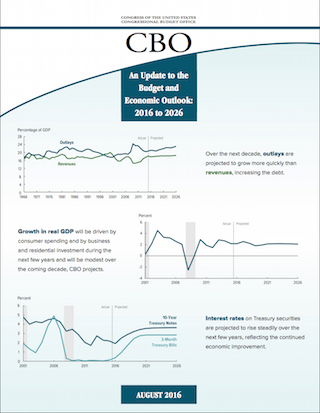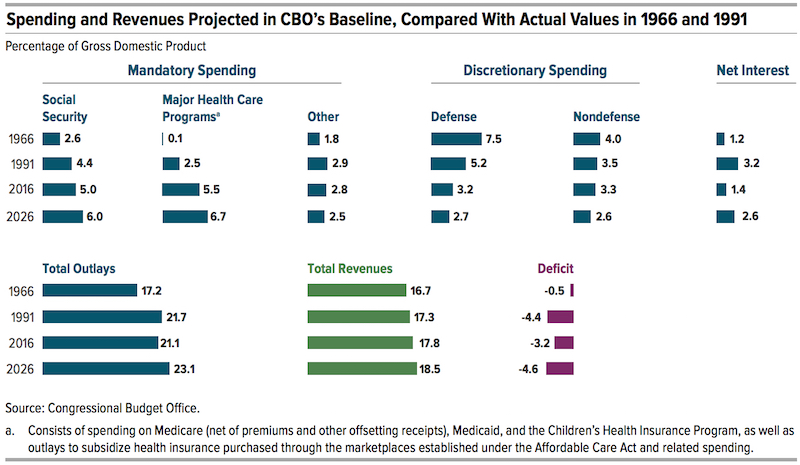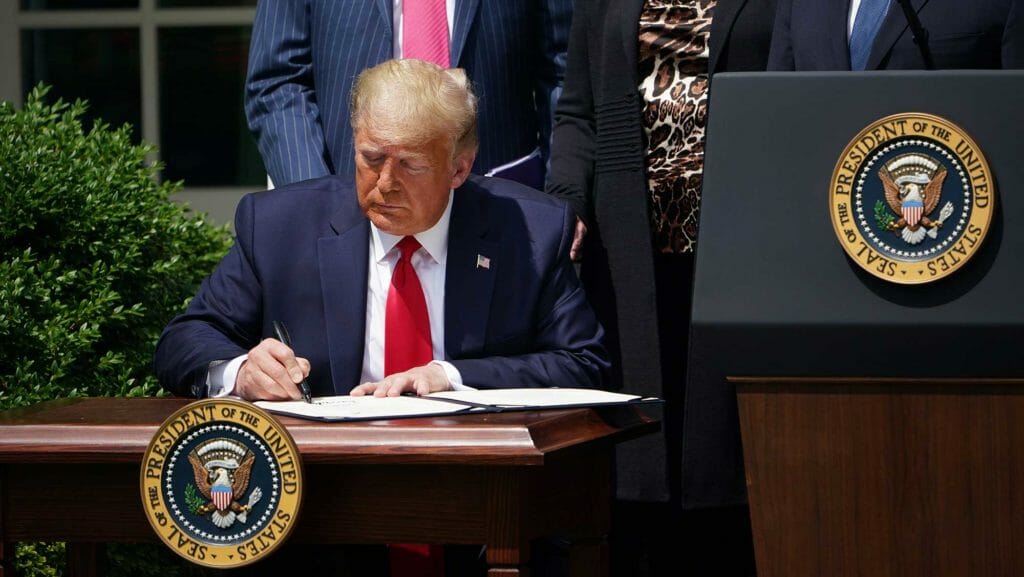
The federal budget deficit will increase in relation to economic output for the first time since 2009, according to an updated economic outlook issued Tuesday by the Congressional Budget Office. Spending on Medicare, Medicaid and Social Security will be responsible for much of the increase, according to the nonpartisan office.
The CBO now estimates that the 2016 deficit will total $590 billion, or 3.2% of gross domestic product, exceeding last year’s deficit by $152 billion.
“Outlays for mandatory programs are projected to rise by close to 70% in nominal terms from 2016 to 2026, increasing as a percentage of GDP by almost 2 percentage points over that period,” the report states. “That increase is mainly attributable to the aging of the population and rising healthcare costs per person, which substantially boost projected spending for Social Security and Medicare.”
Federal spending on major government healthcare programs will increase by $55 billion, or 6%, in fiscal year 2016, according to the publication. Major government healthcare programs, according to the federal government, include Medicare, Medicaid, the Children’s Health Insurance Program and health insurance subsidies.
The CBO estimates that outlays for the Medicare program will increase by $30 billion, or 6%, in this fiscal year, “largely because of increased spending per person, particularly for prescription drugs,” according to the report.
Medicaid outlays are expected to increase by $15 billion, or 4%, this year. The CBO expects Medicaid enrollment to be flat in 2016.
Outlays for Social Security benefits, according to the CBO, will increase by $28 billion, or 3%, this year. “That percentage increase is about a percentage point below the rate of growth in 2015, primarily because there was no cost-of-living adjustment for beneficiaries in January 2016,” according to the report.
“Given these projections, it is particularly discouraging that neither presidential candidate has a serious proposal to slow the growth in the debt (with Donald Trump set to dramatically increase it) and that outside commentators have been calling on policymakers to add more borrowing to an already large and growing debt burden,” the nonpartisan Committee for a Responsible Federal Budget said in a statement. The group posted an analysis of the CBO report on its website.
From “An Update to the Budget and Economic Outlook: 2016 to 2026,” Congressional Budget Office:




